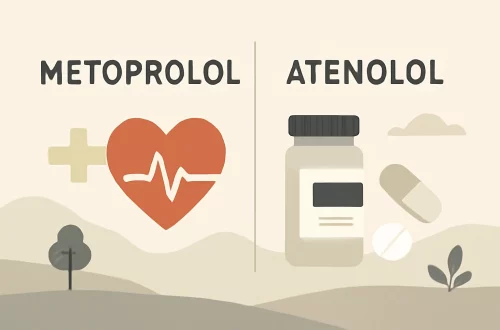-
Effective Nursing Care Plan for Managing Activity Intolerance
Effective management of activity intolerance is crucial in nursing care, as it directly influences a patient’s quality of life and recovery outcomes. Activity intolerance refers to the insufficient physiological or psychological energy to endure or complete daily activities. This condition can stem from various underlying factors, including chronic illnesses, cardiovascular issues, respiratory disorders, and even psychological states such as anxiety or depression. Nurses play a pivotal role in identifying, assessing, and addressing activity intolerance in patients, ensuring they receive the support necessary to regain their strength and independence. To effectively manage activity intolerance, nursing care plans must be comprehensive and individualized. This involves a thorough assessment of the patient’s condition,…
-
Understanding Rx Renal Care in Canine Health Management
Understanding Rx Renal Care in Canine Health Management Managing the health of our beloved canine companions is a multifaceted responsibility that requires attention to various physiological systems, one of which is renal health. The kidneys play a critical role in filtering toxins, regulating electrolytes, and maintaining hydration. As dogs age or face certain health conditions, their renal function may decline, leading to a range of complications that can affect their overall well-being. Pet owners often find themselves navigating a complicated landscape of dietary needs, medication protocols, and lifestyle adjustments to support their dog’s kidney health. Understanding the nuances of renal care is essential for ensuring that our furry friends lead…
-
Celebrities Battling Lou Gehrig’s Disease and Their Inspiring Stories
Lou Gehrig’s Disease, medically known as Amyotrophic Lateral Sclerosis (ALS), is a progressive neurodegenerative condition that affects nerve cells in the brain and spinal cord. The disease is named after the famous baseball player Lou Gehrig, who was diagnosed with it in the 1930s. ALS leads to muscle weakness, disability, and ultimately, death. Despite its devastating effects, the stories of those who have battled this illness can be profoundly inspiring. Many individuals from various walks of life have faced the challenges posed by ALS with remarkable strength and resilience. By sharing their journeys, we not only honor their struggles but also raise awareness about the disease itself. Celebrities, in particular,…
-
Famous Celebrities Who Battled Lou Gehrig’s Disease
Amyotrophic lateral sclerosis (ALS), commonly known as Lou Gehrig’s disease, is a progressive neurodegenerative disorder that affects nerve cells in the brain and spinal cord. This condition leads to the degeneration of motor neurons, ultimately resulting in muscle weakness, paralysis, and, in many cases, death. The emotional and physical toll of ALS is immense, not only for those diagnosed but also for their families and loved ones. Despite its devastating nature, ALS has gained attention through the stories of several famous individuals who faced this relentless disease. These celebrities have not only brought awareness to ALS but have also inspired countless people through their courage and resilience in the face…
-
Innovative Medical Devices for Managing Postural Orthostatic Tachycardia Syndrome
Postural Orthostatic Tachycardia Syndrome (POTS) is a complex condition characterized by an abnormal increase in heart rate upon standing, often accompanied by a range of symptoms including dizziness, fatigue, and palpitations. This syndrome can significantly impact the quality of life for those affected, making daily activities challenging and sometimes debilitating. As awareness of POTS grows, so does the need for innovative solutions to manage its symptoms effectively. Medical technology is evolving rapidly, providing new avenues for patients to gain relief and improve their overall well-being. From wearable devices that monitor vital signs to advanced therapeutic options, innovation in this field offers hope for individuals struggling with POTS. These devices are…
-
Innovative Medical Devices for Managing Postural Orthostatic Tachycardia Syndrome
Postural Orthostatic Tachycardia Syndrome (POTS) is a complex disorder that significantly impacts the lives of those affected. Characterized by the body’s inability to properly regulate blood flow and blood pressure, POTS can lead to a variety of symptoms, including dizziness, palpitations, and fatigue, particularly upon standing. This condition can be debilitating, often leaving individuals feeling isolated and misunderstood. As awareness of POTS grows, so does the demand for innovative solutions that can help manage its symptoms and improve the quality of life for those affected. The intersection of technology and healthcare has paved the way for the development of advanced medical devices tailored to meet the unique needs of POTS…
-
Exploring My Oxy: The Benefits and Uses of Oxygen Therapy
Oxygen therapy has emerged as a cornerstone of modern medicine, providing critical support for patients with various respiratory conditions and other health issues. As the body’s primary source of energy, oxygen plays an essential role in cellular functions, metabolism, and overall well-being. For individuals with ailments such as chronic obstructive pulmonary disease (COPD), asthma, or even those recovering from surgeries, supplemental oxygen can be a game changer. The concept of oxygen therapy extends beyond traditional medical applications; it encompasses a range of practices that utilize oxygen for therapeutic benefits. From hyperbaric oxygen therapy (HBOT) to portable oxygen concentrators, advancements in technology have made oxygen therapy more accessible and versatile than…
-
The Role of Physicians in Guiding Elemental Diets for Patients
The growing recognition of elemental diets as a therapeutic tool has highlighted the essential role of physicians in guiding patients through this nutritional approach. Elemental diets, which consist of easily digestible formulas containing essential nutrients, are increasingly used for managing various gastrointestinal disorders, food allergies, and other medical conditions. As more patients consider these diets, the involvement of healthcare professionals becomes vital to ensure safety, effectiveness, and overall health outcomes. Physicians are not only responsible for diagnosing and treating medical conditions but also for educating patients on the implications and logistics of adopting an elemental diet. This responsibility entails understanding the individual needs of patients, monitoring their progress, and making…
-
Understanding the End Stages of IBD in Dogs: Symptoms and Care
Inflammatory Bowel Disease (IBD) in dogs is a chronic condition that significantly affects their digestive system, leading to a range of symptoms and complications. It is a term used to describe a group of disorders that cause inflammation of the gastrointestinal (GI) tract. The exact cause of IBD is still not fully understood, but it is believed to involve a combination of genetic predisposition, environmental factors, and immune system responses. For dog owners, understanding the implications of this condition, particularly in its end stages, can be a crucial aspect of ensuring their pet’s quality of life. As IBD progresses, the symptoms can become more severe, leading to additional complications such…


































